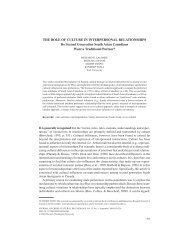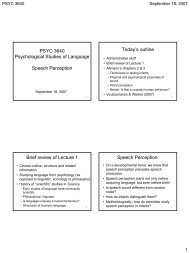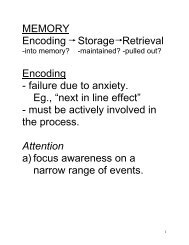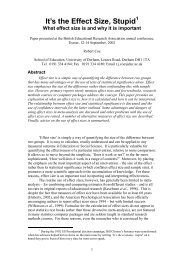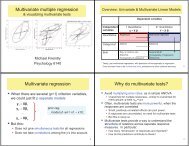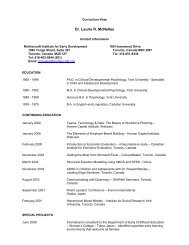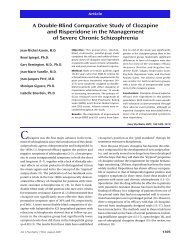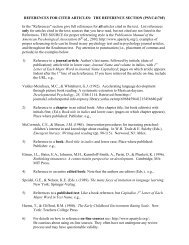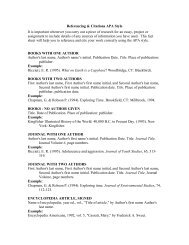The Drama of the Gifted Child (The Search for the True Self)
The Drama of the Gifted Child (The Search for the True Self)
The Drama of the Gifted Child (The Search for the True Self)
You also want an ePaper? Increase the reach of your titles
YUMPU automatically turns print PDFs into web optimized ePapers that Google loves.
to <strong>for</strong>mulate connections that <strong>the</strong> patient himself is discovering<br />
with <strong>the</strong> help <strong>of</strong> his own feelings. O<strong>the</strong>rwise he<br />
is in danger <strong>of</strong> behaving like a friend who brings some good<br />
food to a prisoner in his cell, at <strong>the</strong> precise moment when<br />
that prisoner has <strong>the</strong> chance to escape, perhaps spending his<br />
first night without shelter and hungry, but never<strong>the</strong>less in<br />
freedom. Since this step into unknown territory requires a<br />
great deal <strong>of</strong> courage in <strong>the</strong> first instance, it can happen<br />
that <strong>the</strong> prisoner, com<strong>for</strong>ting himself with his food and<br />
shelter, misses his chance and stays in prison.<br />
Recognizing <strong>the</strong> fragility <strong>of</strong> a creative process obviously<br />
does not mean that <strong>the</strong> analyst must adopt a mostly silent<br />
and hurtful attitude but merely that he must exercise care<br />
in this respect. It is possible, <strong>for</strong> example—provided <strong>the</strong><br />
analyst respects <strong>the</strong> analysand's need to discover things <strong>for</strong><br />
himself—that his compulsion to repeat can be <strong>of</strong> good<br />
service to his creative self-discovery, especially if its indirect<br />
communications are understood. This will come<br />
about through producing a variety <strong>of</strong> new situations<br />
through which an old, unremembered situation can, <strong>for</strong> <strong>the</strong><br />
first time, be consciously experienced in its full tragedy and<br />
<strong>the</strong>n finally be mourned. It is part <strong>of</strong> <strong>the</strong> dialectic <strong>of</strong> <strong>the</strong><br />
mourning process that such experiences both encourage<br />
and are dependent on self-discovery. (Cf. p. 18-20.)<br />
Grandiosity is <strong>the</strong> counterpart <strong>of</strong> depression within <strong>the</strong><br />
narcissistic disturbance. <strong>The</strong> patient can <strong>the</strong>re<strong>for</strong>e be freed<br />
from his depression <strong>for</strong> a while if <strong>the</strong> psycho<strong>the</strong>rapist<br />
knows how to let <strong>the</strong> patient share in his own grandeur—<br />
that is, when he can enable <strong>the</strong> patient to feel big and<br />
strong as a part <strong>of</strong> <strong>the</strong> idealized <strong>the</strong>rapist. <strong>The</strong> narcissistic<br />
disturbance <strong>the</strong>n appears in a different guise <strong>for</strong> a while,<br />
even though it still exists. <strong>The</strong> achievement <strong>of</strong> freedom<br />
from both <strong>for</strong>ms <strong>of</strong> narcissistic disturbance in analysis<br />
is hardly possible without deeply felt mourning. This abil-<br />
56



